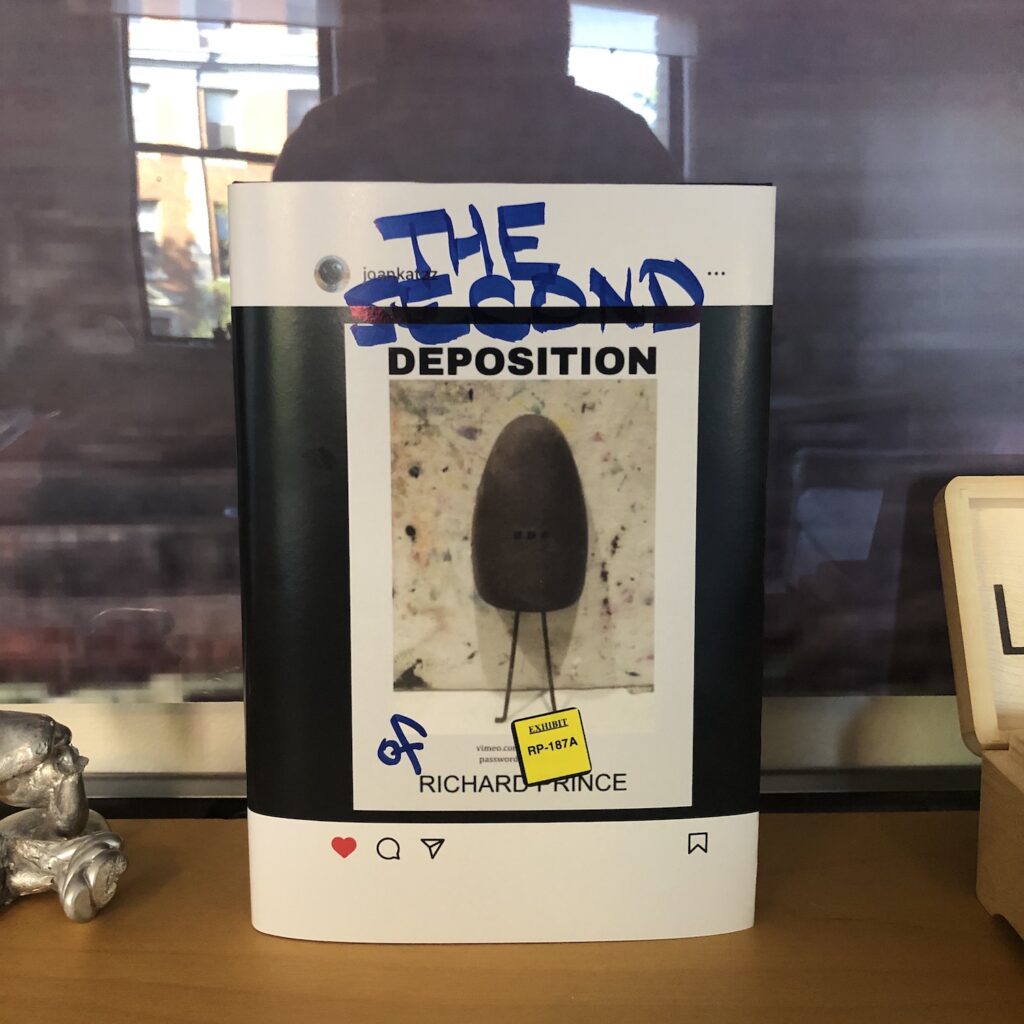
It feels like worlds ago, and world ago all the way down. And also just yesterday.
For a few hours in the Summer of 2023, an Instagram account that tracks the work of artist Richard Prince posted a picture of a rusty shoe tree, standing in front of an abstract painting. It echoed the original image of Marcel Duchamp’s Fountain, which Alfred Stieglitz photographed in front of a Marsden Hartley painting in 1917.
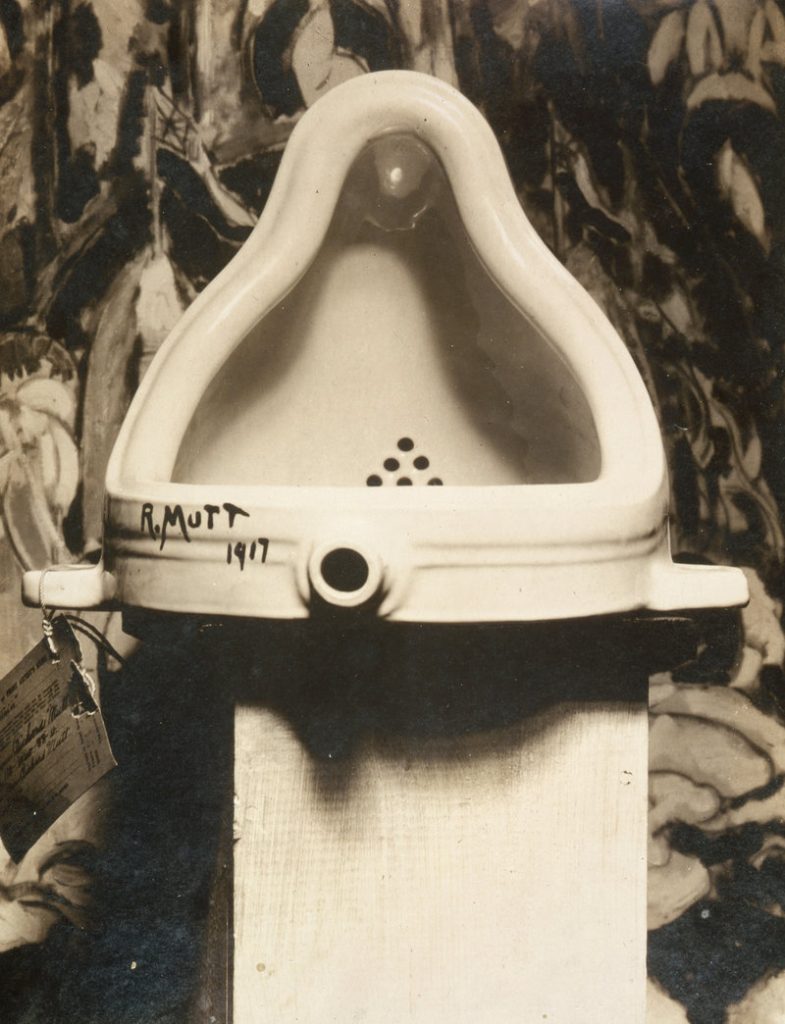
The Instagram image included text elements: DEPOSITION above and RICHARD PRINCE below, with a url and password to an unlisted video file. The video, more than six hours long, appeared to be a recording of Richard Prince’s deposition in a pair of conjoined lawsuits filed by photographers Donald Graham and Eric McNatt, in 2015 and 2016, respectively. Both men objected to photos they took, posted to Instagram by others, which appeared in Prince’s 2014 New Portraits series.

The deposition was conducted back in 2018. After crawling through the pandemic, the suits themselves are only now coming to trial. [Last month, Gagosian Gallery, a co-defendant in the suit, won a partial summary judgment, denying the photographers’ claims to any profits from a 2014 show of New Portraits, or from a hypothetical future sale of Untitled (Rastajay92), the painting—owned by Larry—that included Graham’s image.]
And yet, even though Prince testified in 2018 that he quickly moved on from the New Portraits, and basically withdrew from social media, his deposition still feels both revelatory and relevant.
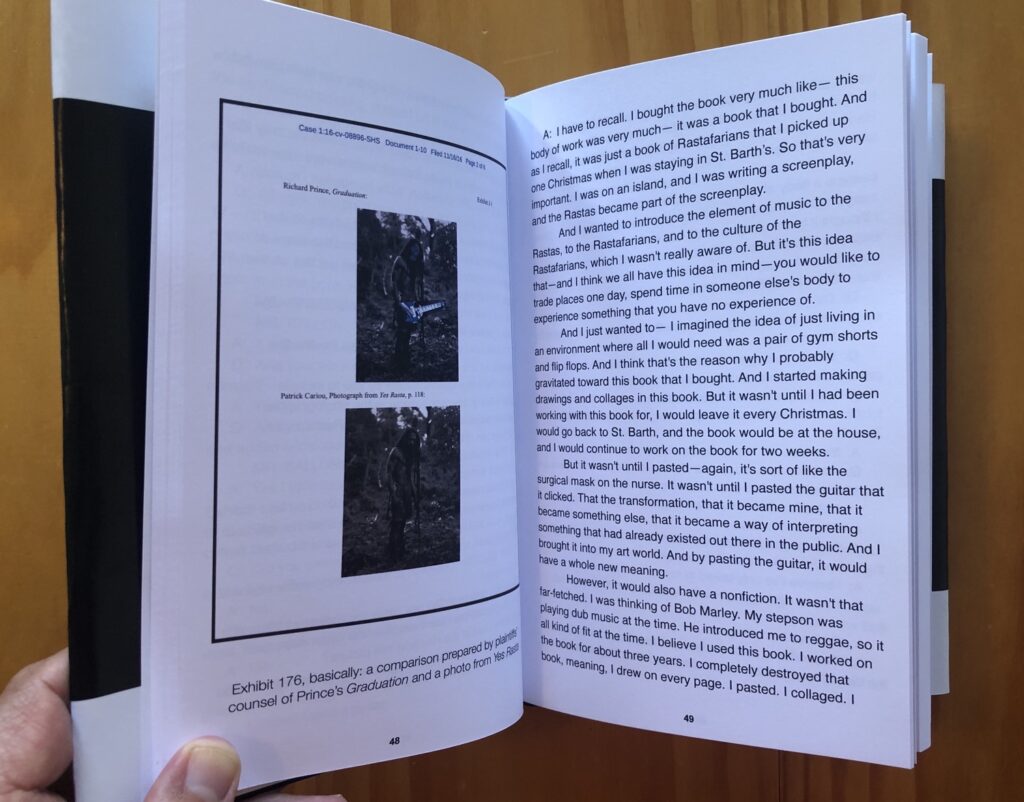
Prince links key aspects of the New Portraits—screenshotting, commenting, the placelessness of a phone-based practice, and experiments with inkjetting—to other major bodies of his work before and since. He discusses his engagement with his artistic influences and his evolving appropriation strategies. And he repeatedly refuses the temptation to shoehorn his artworks into the definitional constraints of the copyright litigation system. Like the first interview from the lawsuit over his Canal Zone paintings—which he also discusses—Prince approached this second deposition as a forum to make the case for his artwork on his terms. [With a tense chorus of at least seven lawyers chiming in along the way.]
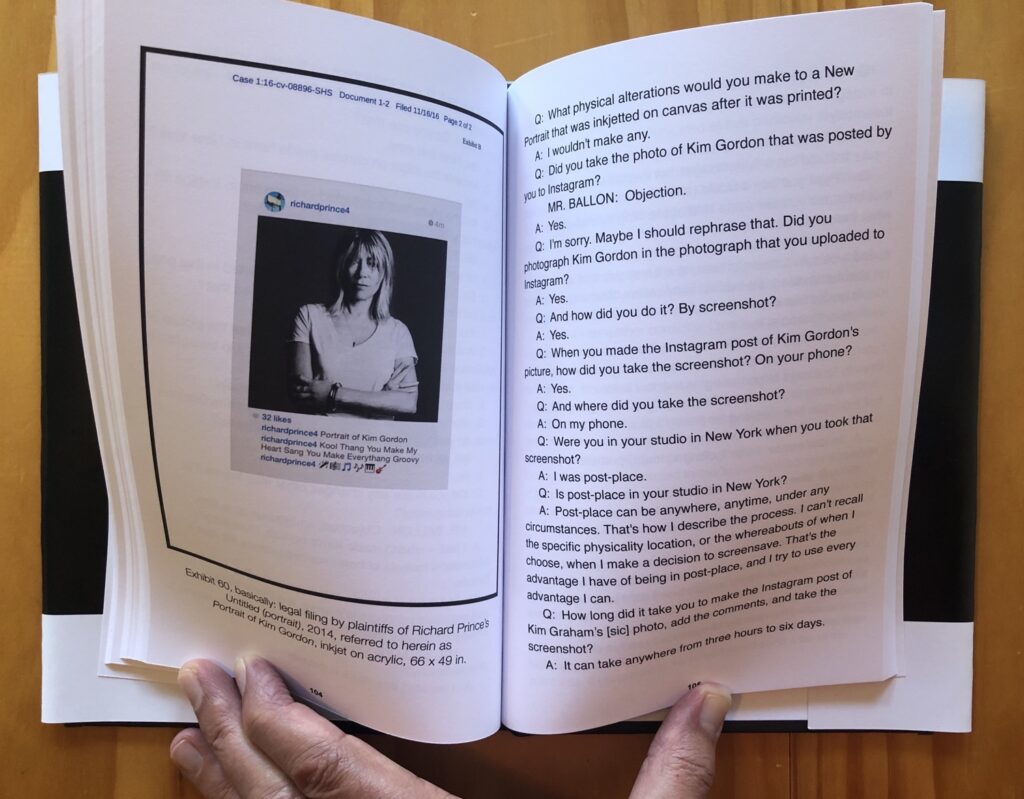
Whether it’s with a multi-year, multi-million dollar lawsuit over two photographs, or the scraping of everyone’s content by billion-dollar AI ventures, Prince’s lawsuits expose the complete failure of the copyright system to either promote creativity or protect artists’ rights. And whether he wins or loses this particular case, I fear Prince’s dogged defense of artistic freedom will still only really be able to help those with enough cash to fight.
Within hours, the Instagram link disappeared. Attempts to verify the authenticity of the deposition with the artist’s camp went unanswered. But I went ahead and made a transcript, and cross-checked it, and added illustrations of the legal exhibits discussed, or their reasonable equivalents. Then I created an index of all the deposition’s art-related references. And I made it into a book.
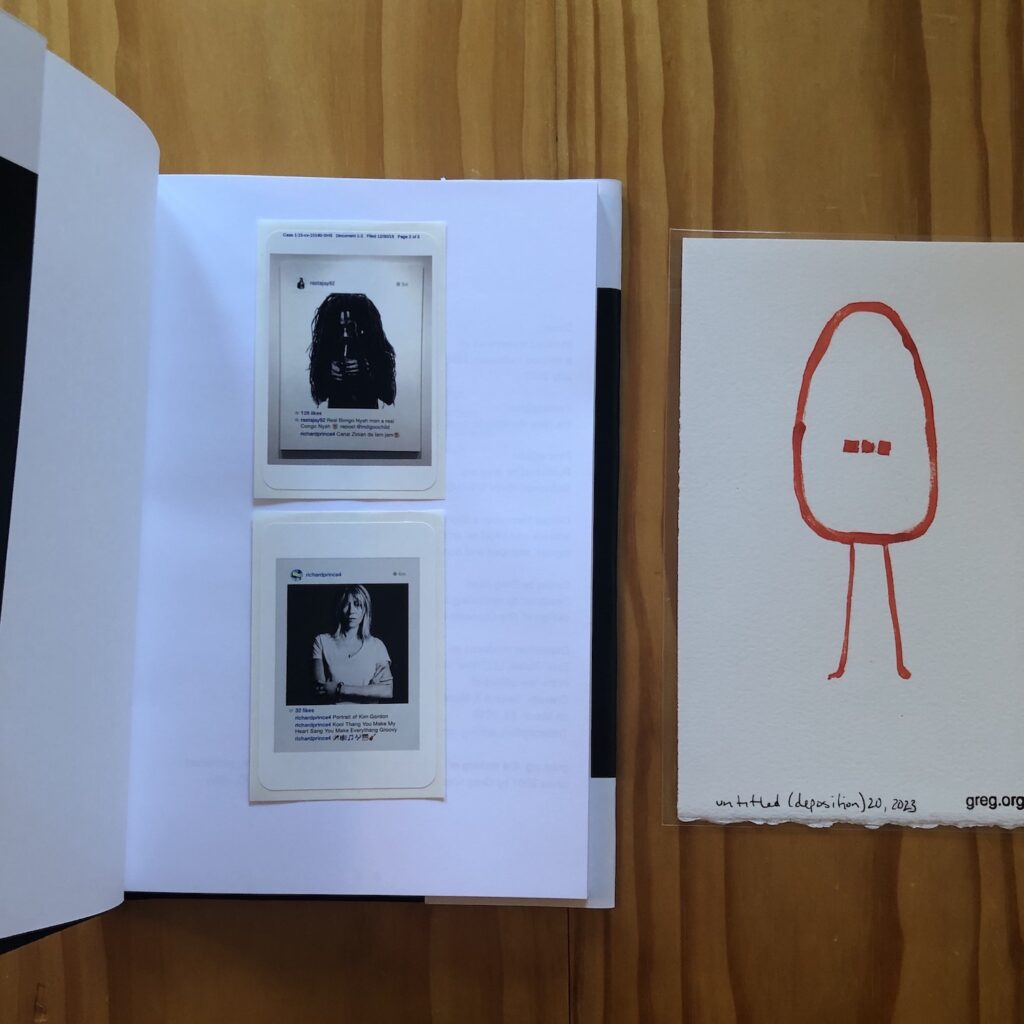
The Second Deposition of Richard Prince (2023), is both an art historical reference and an art object. It is released first as a limited edition hardcover, 166p., printed in full color, in a signed, stamped, and numbered edition of 100, plus 10 artist proofs (I-X). The dustjacket is a digital lithograph printed on archival stock, finished and signed by hand, and completed with additional collage elements. The double frontispiece is tipped in by hand. Each copy of the limited edition includes a unique work, executed either in acrylic or India ink, on BFK Rives. It is at once janky and slick and corny and sick, and a nod to an artist who—as he testified here—places books at the center of his practice.
For inquiries about the limited edition, please email me.
I am still working on a trade edition of the book, which I really envision to sit alongside Canal Zone Richard Prince Yes Rasta, Prince’s deposition transcript from 2009, as a companion. It is taking more work than I expected to find a low-volume or print-0n-demand printer that is not Amazon, that enables the book to be made and sold reasonably. So stay tuned.
A few minutes later: from the latest [undated] birdtalk on Richard Prince dot com:
“At least you’re taking your own pics,” I tell Harmony.
I continue: “Because if you’re not, you’re going to get deposed.”
I continue: “Giving deposition is post-place.”
I continue: “If you’re being sued for something that harmlessly doesn’t belong to you . . . you’re going to be set up, grilled, sit in a hot seat, trying to survive seven hours of stone-cold killing staring straight into a videocam in a conference room somewhere in the bowels of Even Lower Manhattan trying to answer slippery stupid legal questions about what’s art.”“What are you supposed to say?” asks Harmony.
“Something about beachcombing.”
“Innocent,” says Harmony.
Previously, related: Untitled (Re: Graham), 2016
View Source: Richard Prince’s Instagram Portraits
